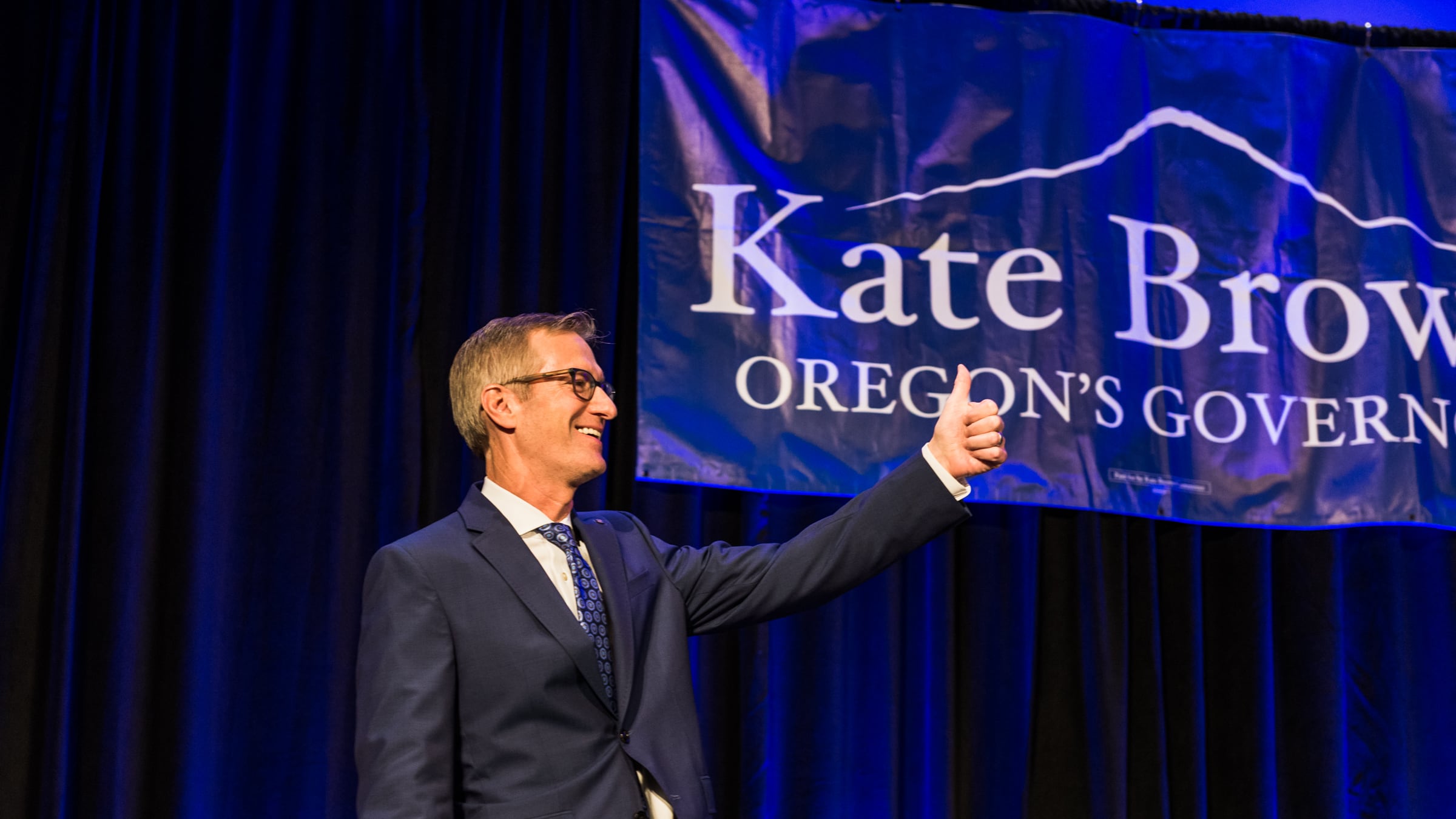Mayor Ted Wheeler today announced the he will observe contribution limits for his re-election next year, although at a level 10 times higher than Portland voters overwhelmingly approved last year.
He'll take checks of up to $5,000 from individuals and up to $10,000 from organizations.
A $500 limit on individual contributions voters approved in 2018 for city elections has not yet gone into effect because of a court challenge, so Wheeler is not bound by it.
Here's Wheeler's statement:
"Voters are justifiably concerned with unlimited contributions allowed under state law," Wheeler said. "That's why we're voluntarily adhering to the same limits as federal candidates—our U.S. Representatives and Senators. These limits, capped at $5,000 per individual and $10,000 for a union or other organization, help level the playing field but deter outside spending like we've seen in elections in other major cities, where special interests disregard public financing and low limits and spend unregulated sums. This is a standard that is stricter than the other candidates in this race for mayor."
Federal contribution limits, shown here, are not exactly as Wheeler states them and in federal races, corporations cannot give directly to candidates in any amount.
He also made a nod to reformers who wanted him to observe a $500 limit.
"Every campaign we've run has relied on grassroots donations from people from all walks of life," Wheeler added. "We'll continue this work, and make sure all contributions are transparent and reported efficiently to ensure voter confidence."
His campaign also will not accept contributions from certain industries: Pharma, oil, coal, firearms, tobacco, adult entertainment are banned and others could join that list.
Jason Kafoury, a Portland lawyer and a leader of the group Honest Elections, which put Measure 26-200, the contribution limits measure on the 2018 ballot, expressed disappointment in Wheeler.
"On behalf of Honest Elections, we would hope that the mayor would show leadership to all other candidates for city and county positions that they should stand with the 87 percent of his constituents that they want candidates to get big money out of politics and follow Measure 26-200," Kafoury tells WW.

